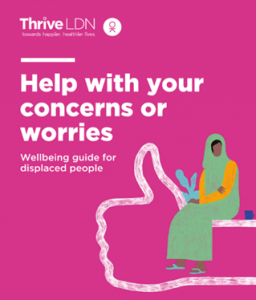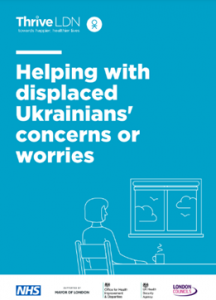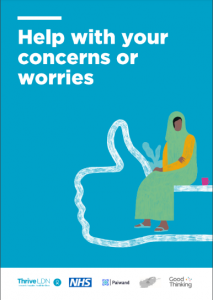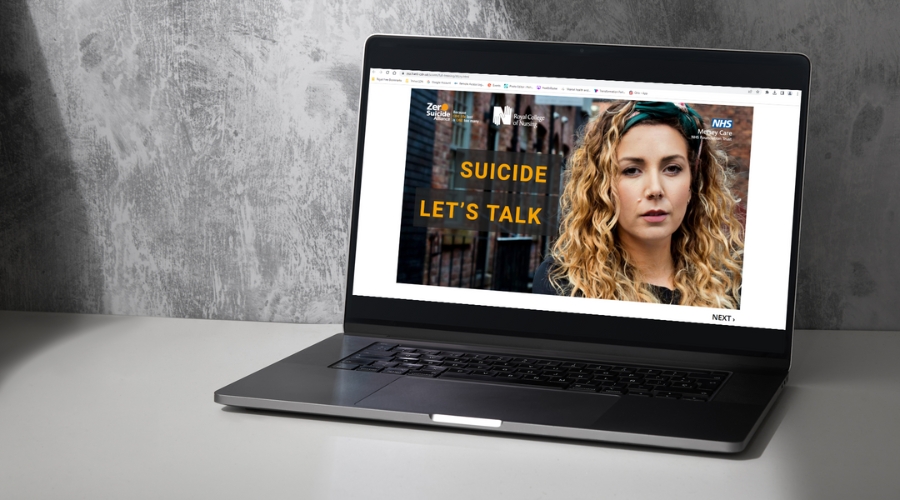
Responding to crisis – support for individuals and communities
London is a diverse city and often global events have an impact on mental health and wellbeing closer to home. As part of Thrive LDN's agile and adaptive approach, we have led the public mental health response to wider crises that have an impact on Londoners’ wellbeing.
London is a diverse city and often global events have an impact on mental health and wellbeing closer to home. As part of Thrive LDN's agile and adaptive approach, we have led the public mental health response to wider crises that have an impact on Londoners’ wellbeing.

From the pandemic to the cost-of-living crisis, to geopolitical crises in Afghanistan, Hong Kong, and Ukraine, we have a developed crisis response framework which enables us to mobilise and respond to emerging crises which we know will have an impact.
In order to realise the magnitude of opportunities available to London to create a safe environment for all Londoners including refugees, asylum seekers and forced migrants, and develop a trauma-informed infrastructure which ensures the fair distribution of resources and non-discriminatory access to mental health support, our work aims to respond to geopolitical crises which considers both structural political-economic conditions alongside less ordered and often hostile processes and experiences at micro, meso, and macro levels.
Supporting displaced people with their mental health

Thrive LDN and the Refugee Council have developed a short video for volunteers and professionals on engaging with refugees and asylum seekers, particularly in relation to supporting mental health and wellbeing.
In the video, Paul Cilla La Corte, London Therapeutic Services Manager for The Refugee Council, shares helpful information and advice learned from the nine years he has spent working with refugees and asylum seekers.
We have also worked together with partners to produce our ‘Help with your concerns or worries’ wellbeing guide for displaced people, which outlines tools and ideas encouraging good mental health and wellbeing.
Supporting the mental health needs of Hongkongers

Thrive LDN was funded by the Greater London Authority to undertake a programme of work to support the mental health and wellbeing of Hong Kong arrivals in London.
In partnership with grassroots organisations, Thrive LDN developed a culturally specific mental health response. This included looking at barriers in talking about mental health and accessing services in the Hong Kong community.
Key outcomes also saw increased education and awareness around navigation of the wider health and social care system in the Hong Kong community as well as increased education, awareness, and cultural competence from professionals when engaging with the Hong Kong community in a trauma-informed way.
As part of our rapid response, in partnership we were able to:
· Develop culturally appropriate mental health and wellbeing resources for Hongkongers
· Deliver workshops and briefings to develop an integrated community of support for Hongkongers
· Provide trauma-informed practice training and resources for targeted professionals.
Resources for Hongkongers and professionals supporting them can be found on our web page here.
Thrive LDN has been funded for a second year running to further this work, with a focus on children and young people and Hongkongers with intersectional identities.
Supporting London partners’ Ukraine response

The Ukraine response was based on supporting the mental health needs of displaced Ukrainians as well as those diasporas living in London. The ongoing crisis has affected the 49,000 Ukrainians and 150,000 Russians living in London.
In April 2022, Thrive LDN built relationships with the Eastern European community organisations and groups to adapt a short guide for those supporting the mental health and wellbeing of displaced Ukrainians arriving to the UK. We worked with the partners to translate existing mental health and wellbeing resources into Ukrainian and commissioned the delivery of trauma-informed practice in humanitarian crisis training.
Our ‘Help with your concerns or worries‘ wellbeing guide for displaced people (available in English and Ukrainian) was utilised by London boroughs and other London partners, as well as being listed across the government’s website and numerous local authorities beyond Greater London.
Supporting the mental health and wellbeing of Afghan Refugees

London is home to the UK’s largest community of Afghans. 7 in every 10 Afghan citizens in the UK reside in the Greater London area. The humanitarian crisis caused by the withdrawal of the International Security Assistance Force (ISAF) at the end of 2021 had an impact on the mental health of not only those directly caught up in the crisis but equally for the Afghan community already settled in London.
We joined up with various community and health partners who work closely with the Afghan community to rapidly bring together a set of resources to support the mental health and wellbeing of the Afghan community and those professionals supporting them.
Supporting Londoners during the Cost-of-Living Crisis
Prior to the pandemic, many struggled with the costs of housing, heating, and food with 4 in 10 Londoners not meeting what is deemed to be an acceptable standard of living 1. As such, the increased cost-of-living pressures which emerged this year have been significant for many across the city and have had a detrimental impact on Londoners’ mental health and wellbeing.
Thrive LDN’s Economic Wellbeing Forum is one way in which we are collectively recognising the impact on population mental health of financial pressures. Initially set up as part of a suicide prevention response during the pandemic, the forum had a specific intention of focusing efforts and offers of support on those from the lowest socio-economic backgrounds and/or belonging to communities which have historically been marginalised and socially excluded.
The forum has been shaping the development of a public mental health response to those dealing with the cost-of-living crisis and emerging economic pressures, particularly on timely ideas for training and resources. By bringing together a broad range of statutory partners, community organisations and those from the workplace/ business sectors, it has created a supportive platform that streamlines signposting efforts, provides ideas for training and resources, and raises awareness of both new and existing support services.
If you’d like to be involved with the forum, get in touch for details of future meetings.
Training and Resources
We have also worked with various partners to provide a series of training programmes to support individuals helping those affected by increased cost-of-living pressures in London. The training programmes were funded by the Mayor of London, and they aimed to improve the mental health and wellbeing of individuals experiencing financial struggles.
Mental Health Awareness and Financial Hardships Training, delivered in partnership with Healthy Dialogues, can be accessed here.
Trauma-Informed Practice Training, delivered in partnership with Nicola Lester, can be accessed here.

We have also adapted our SIGNSS Conversation Starter Tool to directly address the rise in cost-of-living and financial concerns, as well as offer signposting to further support including financial advice and practical help, which can be accessed here.


